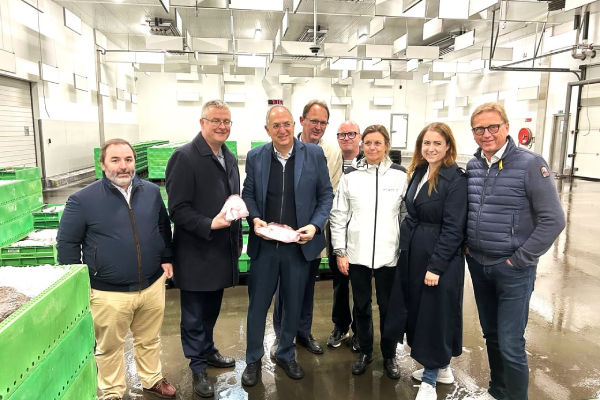Marine Ingredients Denmark urged EU policymakers to consider the Danish sector as a model for responsible, high-value blue economy development. Delegates were warned, however, that national policies such as Denmark’s proposed CO₂ tax could unintentionally drive landings to non-EU ports like Norway—undermining local supply chains.
“There’s real concern that if action isn’t taken to protect domestic landings, we risk weakening the integrity of the entire blue value chain,” said one industry representative.
The delegation also expressed shared concern over marine pollution, especially persistent pollutants like PFAS. Danish stakeholders called on the Commission to take firmer action at source—particularly targeting industrial emissions—to preserve ocean health.
Danish Fisheries at the Heart of Coastal Life
In his remarks, Fisheries Minister Jacob Jensen stated: “In Denmark, we can stand tall and be proud of our fishing industry. It’s an essential part of our coastal identity and a model of low-climate-impact food production. This industry must be developed—not dismantled.”
The trip concluded with a reception at Christiansborg hosted by former Fisheries Committee Vice Chair Søren Gade, now Chairman of the Danish Parliament.
The visit underscored the importance of maintaining a resilient, innovative, and sustainable fishing sector as a pillar of Europe’s food security and blue economy future.
